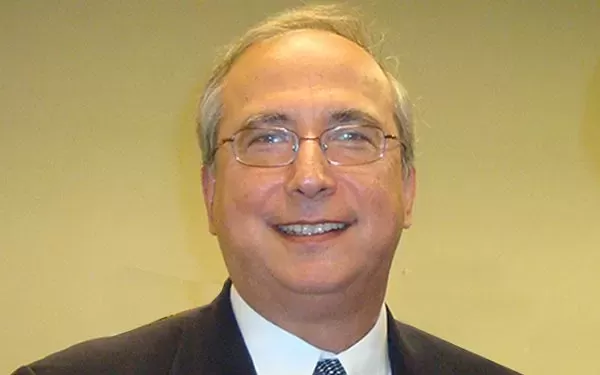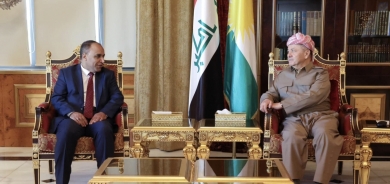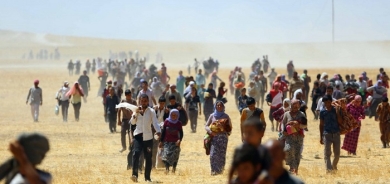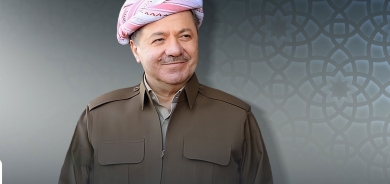Gregory Aftandilian: Contrary to the belief of many in the region, the United States is not “withdrawing” from the Persian Gulf

Gregory Aftandilian, an expert on Middle East politics and US foreign policy, is an adjunct faculty member in the US Foreign Policy program of the School of International Service. He commonly teaches SIS-682: Foreign Policy Institutions and Processes and practicum seminars on U.S. policy towards Egypt. He is also a lecturer in the Pardee School of Global Studies at Boston University and is a Non-resident Fellow at Arab Center, Washington DC. He has authored of several monographs and books on Middle East politics and US foreign policy as well as numerous journal articles.
He worked in the government for more than twenty years as a Middle East analyst in the Departments of Defense and State and as a foreign policy advisor for the Senate Foreign Relations Committee, Senator Edward Kennedy, and Congressman Chris Van Hollen. He has also consulted for the National Democratic Institute, and the Middle East Center at University of Massachusetts-Lowell. Previously Professor Aftandilian held Fellowships at the Center for national Policy, and the Council on Foreign Relations, the Belfer Center at the Kennedy School of Government.
To discuss the foreign policy of President Joe Biden's administration, especially at the Middle East level and a number of other relevant issues, Gulan Media conducted an interview with him.
Gulan: Recently Gulf Cooperation Council (GCC) countries have been able to bridge the gap and made fences among them, especially by reconciling with Qatar, what is your assessment of this development? And it was primarily driven by what?
Aftandilian: Primarily by American pressure—both the desire of the Trump Administration to score a victory before leaving office and a desire of the Gulf states to present the incoming Biden Administration with a gift to get in its good graces. The failure of the boycott to move the Qataris at all also played a role, but it was the American intervention that turned the issue.
Gulan: Obviously, some of Gulf Cooperation Council (GCC) countries, Especially Saudi Arabia and Iran at loggerhead and are locked in confrontation, in your opinion what are the causes and the consequences of this situation?
Aftandilian: The GCC countries have different perspectives on Iran. Saudi Arabia, the UAE and Bahrain see Iran as a major threat; Oman and Kuwait see Iran as a difficult neighbor that you have to work with; Qatar sees Iran as a possible partner. The origin of the Saudi-Iranian rivalry is not sectarian, as many outsiders believe. It is a balance of power contest being played out in the domestic politics of Arab states where the government is weakened or collapsed – Syria, Yemen, Iraq, Lebanon, Palestinian territories. Sectarian differences can play into the rivalry, as Iran backs Shia groups and Saudi Arabia backs Sunni groups in these civil wars and conflicts, but the core of the rivalry is geopolitical. Both states want to speak for Islam and both states want to be dominant in the region.
Gulan: How do you characterize the US role in the Persian Gulf? In your perspective what would the realistic, realizable and responsible approach for US to adopt to engage constructively with challenges of this region?
Aftandilian: Contrary to the belief of many in the region, the United States is not “withdrawing” from the Persian Gulf. It will draw down troops in Afghanistan and perhaps over time in Iraq/Syria. But the basing structure in the smaller Gulf states will remain as will some amount of US military presence. The US role in the Gulf will be less interventionist than it was under Bush 43, more focused on maintaining the strategic status quo. The US under Biden will try to engage with Iran on the nuclear issue with a hope that a success there might over time lead to a more normal relationship, much like the Obama Administration hoped.
Gulan: Evidently, the Saudi Crown Prince Mohammed bin Salman’s conducts and policies have generated enormous controversies to say the least, so has he mishandled any situation? And what achievements he has accomplished?
Aftandilian: The Crown Prince’s accomplishments are substantial in domestic affairs, including in terms of women’s participation in public life in Saudi Arabia, moves toward a more sustainable tax system, efforts to encourage the private sector. Whether the long-term economic changes the Crown Prince is planning will work remains to be seen. On foreign policy, he has made a number of missteps that have tarnished his reputation in the United States and Europe – the killing of Jamal Khashoggi, the kidnapping of Saad al-Hariri in November 2017, the Qatar boycott. The Yemen war has also become a liability for the Crown Prince. The Saudis and the Emiratis could not win the war militarily and do not seem to be able to end it diplomatically.
Gulan: In the latest article in the foreign affairs “The United States Is the Last Check on MBS’s Power”, you don’t recommend that US should isolate Saudi prince, but rather curb his actions, in your expectation how MBS react to any US pressure?
Aftandilian: If the pressure is applied in a private and diplomatic way, I think he will be open to it. He knows that many of his foreign initiatives have back-fired. He is looking for a way to end the Yemen War. No leader likes to be pressured publicly by outsiders. But I think he will be open to American diplomacy.
Gulan: As you know there is an enormous trust deficit between US and Iran, but it seems like Mr. Biden’s administration is willing if not saying determined to resume negotiation with Iran, so what are the prerequisites for taking confidence building measures between these two rival countries, at least for revitalizing the nuclear deal?
Aftandilian: The most important starting point is a mutual return to the terms of the JCPOA. That is what is being negotiated in Vienna right now.
Gulan: What is your expectation for the future of Persian Gulf in terms of best case and worst-case scenario?
Aftandilian: That is too big a question for one interview!















